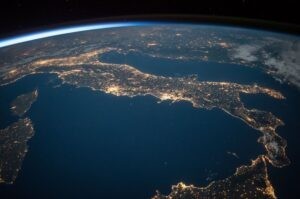Climate Change Adaptation and Technology Transfer: Tightening the Knot by Human Rights
Written by Anubhav Seth
Introduction
The indiscriminate use of natural resources has wreaked havoc on the human environment. Global warming has been exacerbated by human activities as a result of technological advancements. The gradual rise in temperature has not only put people’s lives in jeopardy but has also raised questions about the role of technologies in bringing about progress. Scientists and inventors have been challenged by climate change to embrace eco-friendly technology.
Realizing the inevitable impact of climate change, governments all over the world, particularly in developed countries, have begun to invest in climate-friendly technologies. Eco-friendly technology is protected by a number of intellectual property laws. As a result, the developed economy has retained the exclusive use of technology, leaving three-quarters of mankind to cope with the issues of climate change on their own.
Nature knows no bounds, thus attempts to reduce detrimental effects should never be entrusted to the wealthy and resourceful. The duty to use environmentally friendly technologies should be made non-negotiable and made available to everyone. However, the strict intellectual property protection framework makes it difficult for developing countries to import and use green technology for development purposes.
Countries are negligent about the exploitation of resources in the pursuit of greater growth, which has resulted in irreversible environmental degradation. Climate change is an instance of such a negative influence. Climate change is posing a severe threat to mankind.
What is Climate Change?
Climate change is the change in the earth’s climate, whether global or regional. It illustrates how the atmosphere has changed over time spans varying from decades to millions of years. The word “climate change” has no universally agreed-upon definition. Many people have defined climate change in several ways. Some interpret it as a result of the natural processes of Earth, while others define it as a result of human activity.
Striking a compromise between these two opposing viewpoints climatic change may be defined as “a change that is attributable directly or indirectly to human activity that modifies the atmospheric composition which is in addition to natural weather patterns observed over similar time intervals”. Floods and cyclones have been seen as a consequence of uncontrolled greenhouse gas emissions caused by human activity. Harvest, land, and infrastructure have all been destroyed, and public health and well-being have suffered greatly as a result.
Climate Change & Human Rights
It was stated in Climate Change and Human Rights: A Rough Guide published in 2008 by the International Council on Human Rights, that “Climate change has already been jeopardizing the realization of a wide range of internationally protected human rights, including the right to health and even life; the right to food, water, shelter, and property; the right to livelihood and culture; the right to migration and resettlement; and the right to personal security in the event of conflict”.
Human rights are enjoyed by human beings for the fact of ‘being’. They are inseparable, inviolable and universal in nature. They are weapons in the hand of the weaker to correct the distorting effects of power. Human rights aim fundamentally to counteract power imbalance. In this perspective, the linkage between climate change and human rights can be developed……………………………………………. To Read Full Paper Click on the download button below.
Read the Previous Article
Climate Change Adaptation and Technology Transfer: Tightening the Knot by Human Rights
Advertising Law: Observing the Fine line Amongst Online Advertising and the Law
Juvenile Delinquency: Criminal Justice System and Youth Development Programme





